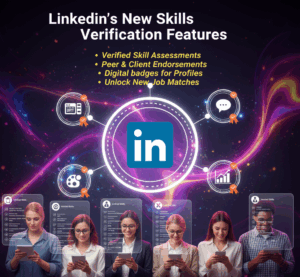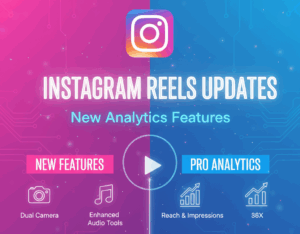Workspaces powered by artificial intelligence are being tested by Facebook.

Workspaces powered by artificial intelligence are being tested by Facebook.
The parent corporation of Facebook, Meta, is continuing to move ahead with its vision of the metaverse in the year 2025. This time, they are testing virtual reality (VR) workplaces that are driven by artificial intelligence. Meta is wagering that virtual reality (VR) that is imbued with artificial intelligence might alter how teams connect, brainstorm, and remain productive. This comes at a time when remote and hybrid work are becoming the standard throughout the world.
1. Why Virtual Reality Workspaces Are Increasingly Relevant
The worldwide transition to hybrid work patterns has prompted firms to look for solutions that are more immersive in order to maintain employee engagement. It is common for traditional video chats to seem restrictive because they lack the spontaneity and participation that are present in face-to-face meetings. Virtual reality (VR) workplaces are designed to address this issue by constructing three-dimensional settings in which workers may engage with one another as avatars, freely move about, and organically communicate, almost as if they were in the same office.
2. Artificial Intelligence Meets Virtual Collaboration
The most recent testing go beyond the confines of traditional virtual reality workspaces. Facebook is using elements powered by artificial intelligence in order to make workplaces more intelligent and efficient:
- Virtual agents that are able to take notes, summarize talks, and even recommend follow-up activities are referred to as artificial intelligence meeting assistants.
- Customization of the Smart Environment: Artificial intelligence may change the layout of the workplace dependent on the objectives of the meeting. For example, it can change the workspace from a casual lounge for brainstorming to a formal boardroom for presentations.
- Real-Time Translation: Integrated artificial intelligence translation capabilities make it possible for personnel from various areas to smoothly converse in virtual reality.
- Analytics for Productivity: Artificial intelligence monitors levels of employee engagement and assists managers in comprehending how teams interact in virtual environments.
3. What the Prospects of Immersive Work Hold
Virtual reality (VR) may offer spatial awareness and presence, in contrast to flat video conferencing solutions. As an example, members of the team may approach the avatar of a colleague for a brief side discussion or assemble around a virtual whiteboard for the purpose of exchanging ideas from one another. When artificial intelligence is included into these encounters, they not only become more immersive but also more productive.
4. Obstacles and Restrictions to Consider
In spite of its promise, the idea is confronted with a number of obstacles:
- Hardware Obstacles Virtual reality headsets continue to be costly, and most workers do not have access to them.
- Being able to adjust to virtual reality surroundings is a process that takes time and may not be appealing to everyone.
- Concerns Regarding Privacy: Because AI is gathering and analyzing meeting data, businesses and their workers may be concerned about the manner in which information is handled and used.
- Due to the fact that prolonged usage of virtual reality may lead to pain or weariness, working long hours in virtual workplaces can be a tough experience.
5. The Strategic Perspective of Meta
The virtual reality workplaces that Meta is promoting as the future of work are a direct result of the company’s bigger metaverse goals. Through the incorporation of commerce, social networking, and productivity into virtual reality surroundings, Meta intends to establish itself as the platform of choice for digital life, including both professional and personal endeavors.
6. Repercussions for Commercial Enterprises
Virtual reality workplaces driven by artificial intelligence might provide the following benefits to forward-thinking businesses:
- Reducing the demand for actual office space results in cost savings.
- Without regard to time zone or language obstacles, global collaboration is possible.
- The use of interactive 3D technologies to foster increased creativity.
- Standard video calls lack the feeling of presence that is necessary for employee engagement.
- An early adopter may be the most likely to reap the rewards, particularly in the fields of technology, design, and worldwide consultancy.
7. The Implications of This for Staff Members
Virtual reality offices have the potential to further blur the boundaries between the home and the workplace for employees. The adaptability and immersive experience may be appreciated by certain individuals, while others may find it to be invasive. Artificial intelligence will play a crucial part in ensuring that the experience is helpful rather than overpowering.
By experimenting with virtual reality workplaces driven by artificial intelligence, Facebook has signaled a significant change in the way that technology titans envisage the future of professional cooperation. If it is effective, it has the potential to lessen dependency on video conversations and emails by replacing them with virtual worlds that are more active and augmented by artificial intelligence. However, widespread acceptance will be contingent on the product’s price, user-friendliness, and the client’s faith in Meta’s capacity to handle sensitive workplace data.
It is possible that the workplace may be one of the first locations where virtual reality and artificial intelligence will fully intersect to transform everyday life as the metaverse continues to develop.







